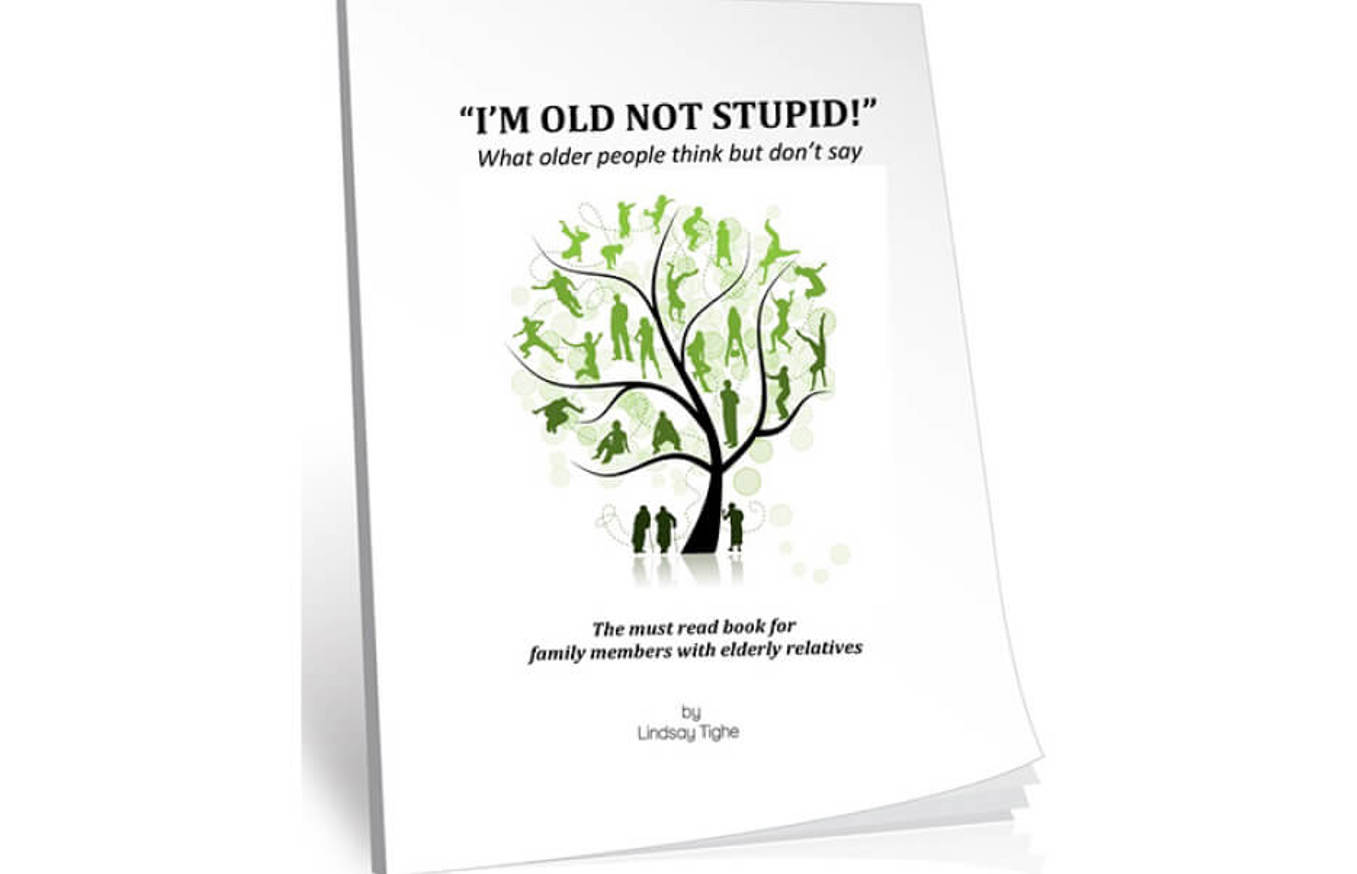I’m old, not stupid
07/12/2023

I’m old, not stupid
The title of a booklet caught my eye recently. It read, “I’m old, not stupid – What older people think but don’t say.”
It describes itself as the ‘must read book’ for family members with elderly relatives.
The title pulled me up because it echoed my own irritation about the way many ‘younger’ people so often speak to and interact with older people. As if older people (whatever age that is), despite their many decades and depth of experience on the planet, are somehow no longer normal, intelligent adults.
We see it in the way too many people in the caring professions speak to – or about – older people. In the way they change the pitch in their voice and come over all jolly and paternalistic with their ‘Now don’t you worry yourself with any of that, Mr Smith, we’ll get you sorted in no time’, approach to communication.
Tighe says her friend had been visiting her grandmother at her new aged care home (nursing home) and had listened to her describing her indignation with the patronising way in which the staff interacted with her, as if loss of intelligence was a natural consequence of physical frailty.
We see it in families too, when an elderly parent, perhaps needing some form of assistance at home, gradually becomes the passive subject of discussions among adult children and others, rather than an equal and active participant in those discussions.
Unfortunately, in Western countries like ours that are so persistently ageist, we see these attitudes and behaviours toward older people across most spheres of life.
Causing offense
It turns out that the title of the booklet – I’m old, not stupid – comes from the grandmother of one of the author’s friends.
Author Lindsay Tighe is also a trainer, coach and founder of a training company, Better Questions. Tighe says her friend had been visiting her grandmother at her new aged care home (nursing home) and had listened to her describing her indignation with the patronising way in which the staff interacted with her, as if loss of intelligence was a natural consequence of physical frailty.
“The woman told her granddaughter she was sick of being treated this way. ‘I’m old, not stupid’, she said.
“I thought, yes, that’s the title of a book,” says Tighe.
Unconscious ageism
Tighe says she wrote the booklet – a 74 page soft-covered handbook – to address the problem of the largely unconscious way that many people communicate with older people, particularly – but by no means exclusively – those who have any form of incapacity.
“I have trained and coached thousands of people in health and caring professions,” says Tighe, “and one of the things that comes up really frequently, is the way that people tend to step in and take over older people’s lives.
Tighe says there is a tendency for people to assume that, if an older person is having difficulty with one area of their life, they need to step in and take over everything for them.
“One of the things they do wrong,” she says, “is make unconscious assumptions about what it means to grow old and what it’s like to BE ‘old’.
“Our own views and perceptions of ageing, which tend to be based on ageist stereotypes about loss and dependency, inform our behaviours. Is this how WE expect to feel and be treated as we grow older?
“The second mistake people make is they have a false belief that when they tell, fix, arrange, give advice, that they are ‘helping’.”
Rewiring the way we help
Again, Tighe is keen to reassure that helping is a good thing when it genuinely helps. The problem is, the way most of us go about it, it often doesn’t help – at least not in the long run.
“They may get resentful that they never get a chance to find their own solutions, which in turn makes them feel disrespected and disempowered.
The antidote to this approach, according to Tighe, lies in becoming better at asking the right questions and listening, rather than telling.
One of the challenges she sets for the reader is to, “consider the possibility that the other person can know as much as you and indeed it is possible they may well know better than you, particularly when it comes to making decisions about themselves and their own lives.”
Tighe acknowledges that it’s more complicated when someone has serious cognition problems and that a percentage of people by nature will choose to be passive and prefer to have things ‘fixed’ by others.
But the majority of people, she says, want to feel as empowered as they can and have their strengths and capabilities recognised.
“We need to rewire that unconscious pattern of behaviour most of us have as tellers and doers and fixers when it comes to older people.
“The world is a mirror – if you want to encourage people to be capable, then interact with them in a way that expects them to be capable.”
I couldn’t agree more.
Find out more or buy the book at www.betterquestions.com.au














